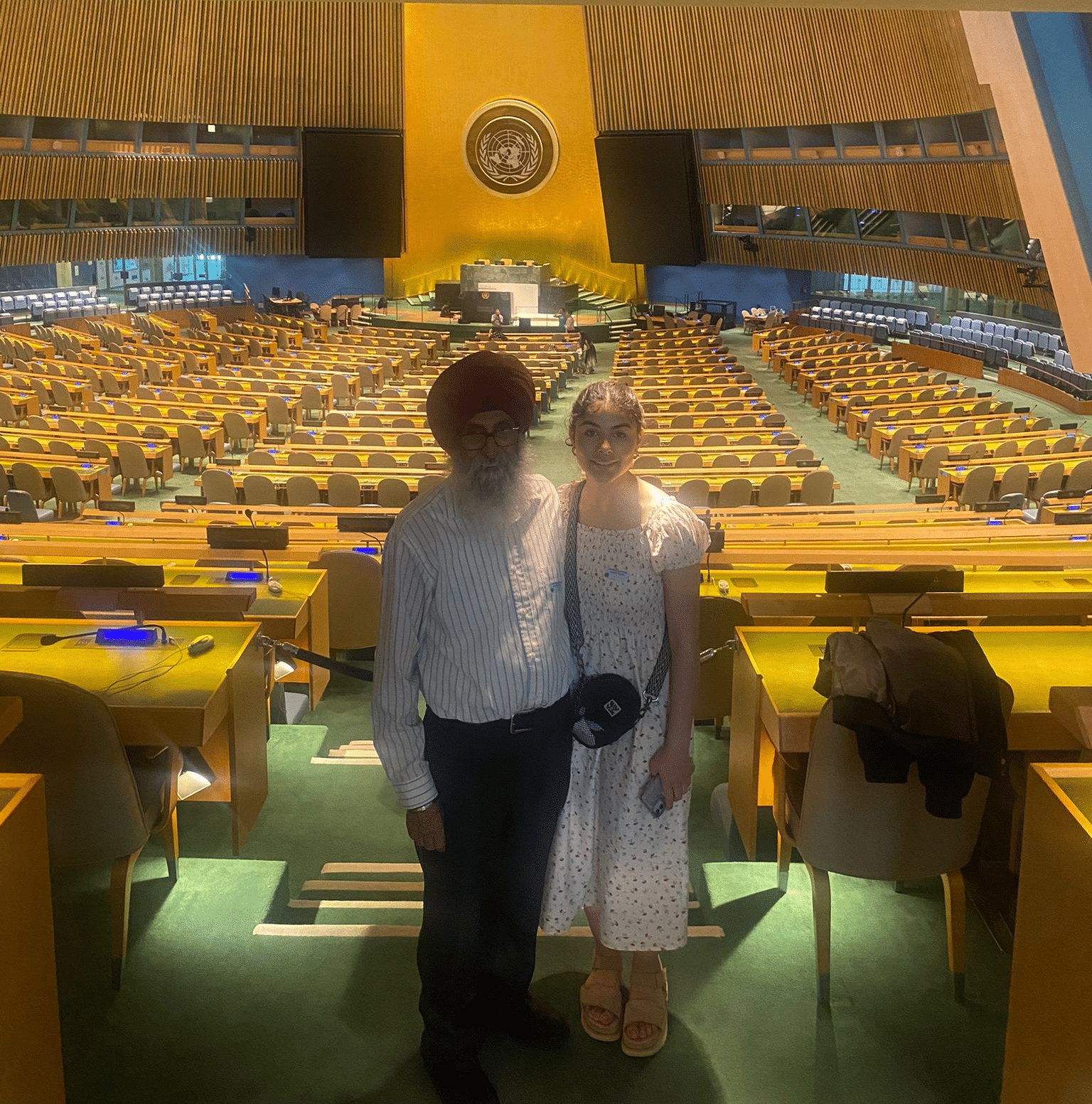Over the summer holidays, I was lucky enough to gain exclusive 3 day access to the UN, to interview 15 UN Secretariats and officials working across 6 UN divisions about peacekeeping and climate change.
Almost all of these interviews had to be conducted under ‘Chatham House Rules’, meaning that no direct quoting or names could be attached to them, because going on the record is problematic for many UN officials, unless they are an official spokesperson for the Organization and that is part of their specific role. The main reason for this is that it would be easy for the personal views of an individual staff member to be understood by the public as the official view of the Organization, which has the potential to create confusion and get in the way of the overall delivery of mandates from Member States. UN staff members are required to sign a ‘code of conduct’ in this regard. But the experience was so thought-provoking and interesting that I decided to create this blog about my experience in the hope that it might be of interest to others too. I plan to follow this post with more in-depth articles which highlight particular issues, using the information I gathered at the UN and more of my own research.
Commuting through New York felt so surreal. Every corner I turned presented a new world, some vibrant, some rather dull, some built up, and others more deprived. A sense of nervous and excited anticipation hung over me in the subway which was very hot, but comfortingly lively. When I reached the UN plaza, I was buzzing. We were on the 35th floor, which was decorated with posters advocating for the ‘Peace Begins with Me’ campaign. My group (2 boys in year 13 and me) had a briefing and 3 interviews that day. I was in awe; this wasn’t your normal office.
Over the course of my interviews, I discussed the topics of human rights, judicial affairs, peacekeeping logistics, disarmament, demobilisation and reintegration, special political missions, the climate security mechanism and many other fascinating themes in great depth. I felt that most staff members of the UN Secretariat were frustrated at how many layers of bureaucracy they had to get through to implement change. The ‘ecosystem’ of UN divisions can be hard to navigate in such a fragmented system. Member States choose to distinguish the roles and responsibilities of different UN departments from each other. Also, Human Rights Officers want to ensure that they are perceived differently from the Blue Helmets, in a less intimidating way. This ensures that despite the progress of the peacekeeping mission, everybody understands that the UN will try to uphold their human rights as a priority.
Furthermore, everything is entirely dependent on the consent and co-operation of member states. Therefore, peacekeeping operations, special political missions and climate security mechanisms can encounter hardships, especially in times of political upheaval. The Security Council is instrumental in amending any policies and mandates, which can be easily ‘vetoed’ or blocked by permanent member states, if they are not in their interest.

Ruby and her Grandfather in the General Assembly Hall
"Being at the UN ignited a fire in me. I want to help promote sustainable development internationally and prevent conflict (reducing humanitarian crises in vulnerable regions). I want to fight for justice, equality and change. Whether it be through the UN working in peacekeeping zones, or through other pathways (maybe NGOs), I have been inspired to fight for humanity in my career."
In spite of this, every person I spoke to, had a profound respect and understanding for the UN’s guiding principles: peace, dignity and equality. For me, these are intrinsic values that drive and inform most of my actions, so I connected closely with the UN’s atmosphere. The founding pillars of the UN are development, human rights, and peace and security. Every action taken by the UN is done to preserve, conserve and discuss at least one of these pillars, and how they intersect.
I came into this process with a passion for human rights and climate justice. I am also a keen geographer, looking to pursue geography at university and beyond, so issues such as climate change and geopolitics in conflict-ridden regions were fascinating to explore. Being at the UN ignited a fire in me. I want to help promote sustainable development internationally and prevent conflict (reducing humanitarian crises in vulnerable regions). I want to fight for justice, equality and change. Whether it be through the UN working in peacekeeping zones, or through other pathways (maybe NGOs), I have been inspired to fight for humanity in my career. Overall, my time at the UN was unforgettable, exceptional and an important point in my career.